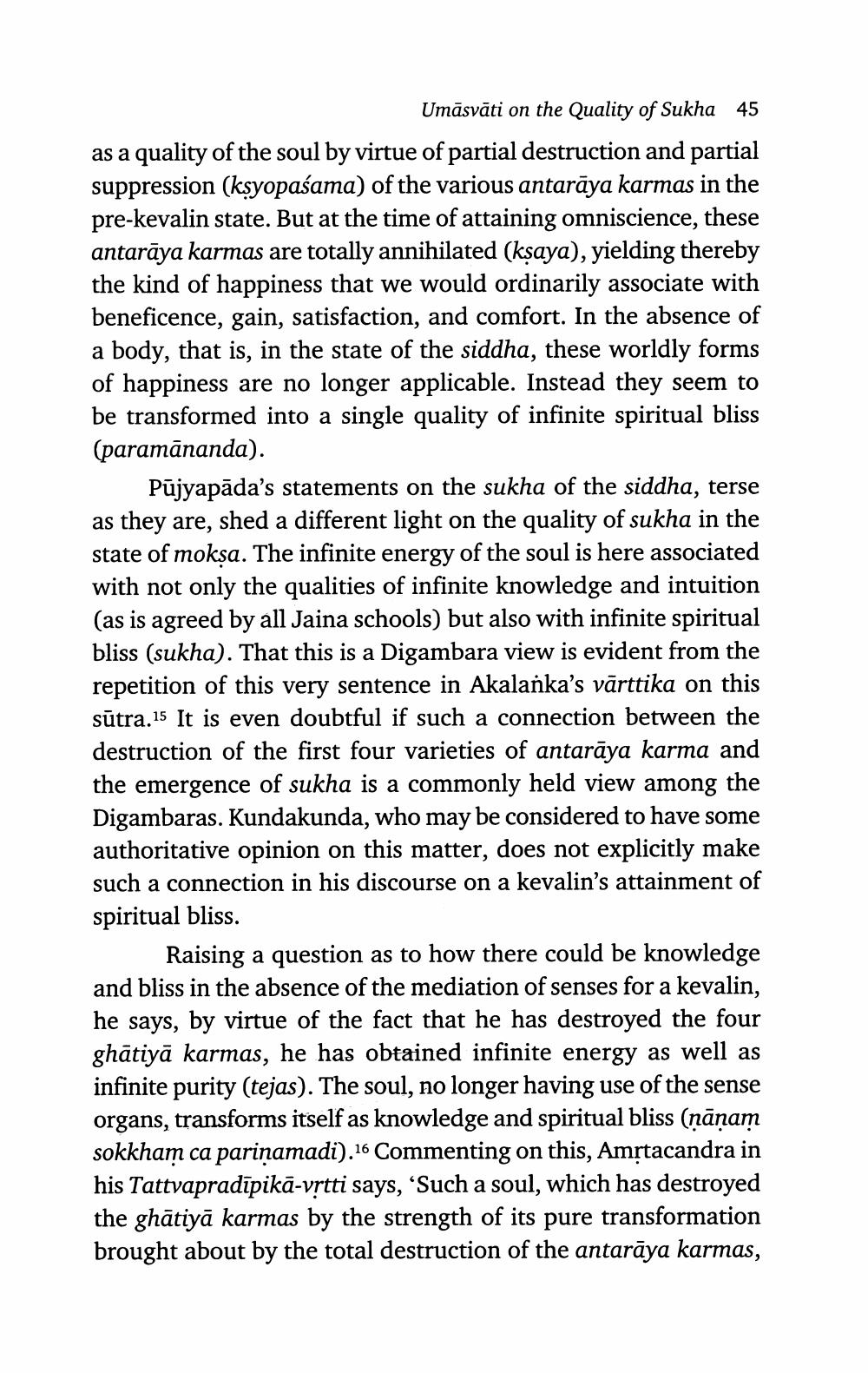________________
Umāsvāti on the Quality of Sukha 45 as a quality of the soul by virtue of partial destruction and partial suppression (ksyopaśama) of the various antarāya karmas in the pre-kevalin state. But at the time of attaining omniscience, these antarāya karmas are totally annihilated (kṣaya), yielding thereby the kind of happiness that we would ordinarily associate with beneficence, gain, satisfaction, and comfort. In the absence of a body, that is, in the state of the siddha, these worldly forms of happiness are no longer applicable. Instead they seem to be transformed into a single quality of infinite spiritual bliss (paramānanda).
Pujyapāda's statements on the sukha of the siddha, terse as they are, shed a different light on the quality of sukha in the state of mokṣa. The infinite energy of the soul is here associated with not only the qualities of infinite knowledge and intuition (as is agreed by all Jaina schools) but also with infinite spiritual bliss (sukha). That this is a Digambara view is evident from the repetition of this very sentence in Akalanka's vārttika on this sūtra.15 It is even doubtful if such a connection between the destruction of the first four varieties of antarāya karma and the emergence of sukha is a commonly held view among the Digambaras. Kundakunda, who may be considered to have some authoritative opinion on this matter, does not explicitly make such a connection in his discourse on a kevalin's attainment of spiritual bliss.
Raising a question as to how there could be knowledge and bliss in the absence of the mediation of senses for a kevalin, he says, by virtue of the fact that he has destroyed the four ghātiyā karmas, he has obtained infinite energy as well as infinite purity (tejas). The soul, no longer having use of the sense organs, transforms itself as knowledge and spiritual bliss (ṇāṇam sokkham ca pariņamadi).16 Commenting on this, Amṛtacandra in his Tattvapradipikā-vṛtti says, 'Such a soul, which has destroyed the ghātiyā karmas by the strength of its pure transformation brought about by the total destruction of the antarāya karmas,




